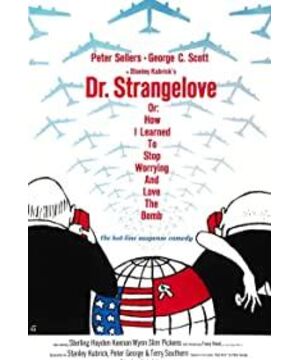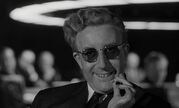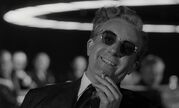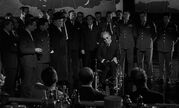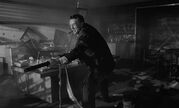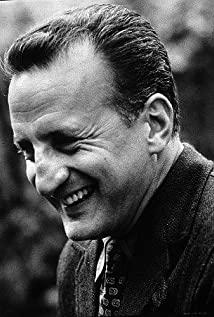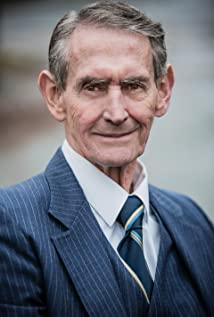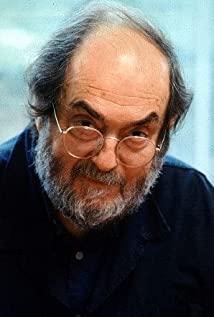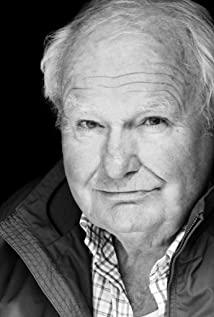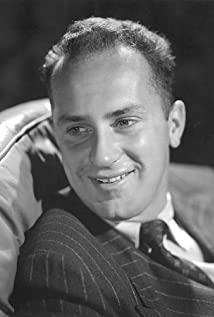Flying high above the beautiful mountains and rivers, plains and deep valleys, flying across the European continent, flying to the Soviet Union... The
soundtrack is a humming of a male voice without lyrics named "Bomb Run" on the original soundtrack.
If humming without lyrics is used locally, it can have a miraculous effect that the interlude and soundtrack do not have.
This section of "Dr. Strange Love" is very moving. In my memory, only the beginning of "One and Eight" is comparable to the one at sunrise.
The following is the process of verifying the provenance of this soundtrack.
1. Regarding the problem of a soundtrack in
"Dr. Strange Love", the most used section of "Dr. Strange Love" first appeared at around 10 minutes, when the B52 bomber confirmed to the base the R plan to attack the Soviet Union with nuclear weapons.
The music is a bugle accompanied by drum beats, the tune is nice and uplifting. It's like a soldier cheering up.
I first heard it in a joan baez song
Is this piece of music specially composed for this poem? Or was it originally a piece of military music, but some people took it ironically and changed it into an anti-war ballad?
After listening to Joan Baez's version, I heard this tune twice within a month. One is that in Sex and the City, the protagonist Carrie talked about war-related topics when chatting with others. Carrie said she knew something about it and hummed a little sentence.
The second is to watch the TV channel and switch to a certain station to play "Women's Special Police Force", and the team members will show them military instructional films when they are training. The scene that seems to be a foreign military exercise is also accompanied by this piece of music.
Based on this, I think it is more likely to be a piece of military music at first, but which country’s military music is it, and when did it begin?
2. Confused
In fact, there is a famous film like dr. Strangelove, the answer is not difficult to find is
a partial answer, right:
The score for the B-52 scenes is mostly made up of the melody of "Johnny, I Hardly Knew Ye", a traditional Irish anti-war song, which also provides the melody for the somewhat better-known (at least in the United States) American Civil War song "When Johnny Comes Marching Home Again". While the former tells the story of a soldier coming back from a war heavily mutilated and broken, with the last lines being "They're rolling out the guns again, but they'll never take my sons again", the latter describes the celebrations that will take place when the soldiers return from war: "The men will cheer and the boys will shout / The ladies they will all turn out / And we'll all feel gay / When Johnny comes marching home."
During the American Civil War, Patrick S. Gilmore, an Irish Southern Army band conductor, changed an Irish anti-war folk song Johnny, I Hardly Knew ye ("Johnny, I Can’t Recognize You"), which protested against the enlistment in England. The song When Johnny Comes Marching Home ("When Johnny Comes Marching Home") is a song that welcomes the soldiers.
In fact, this catchy song was widely circulated during the war and was sung by soldiers and civilians in the north and south.
Carrie is a fashionable girl. It would be strange if she knew an old Irish folk song, but she knew the Civil War song and used it to express her understanding of "war", it would be easy to explain.
The educational video watched by the female SWAT team is likely to be about the United States.
Lao Ku's thoughts have always been used very hard, and the two-layer subtext of war is also regarded as an example here.
The jokes, madness and darkness in his film are consistent with johnny, i hardly knew ye. Monsters like johnny like armless, boneless, chickenless egg, like nuclear bombs, are the inevitable product of human continuous progress. They are both human and inhuman. They are both primitive and barbaric and modern civilization. Their generation and erosion are inevitable for humans, and the end of everything, just like the ending of dr.strangelove, is a beautiful ultimate destruction.
3. Make up the lyrics of these two songs
1). When johnny comes marching home again
This is generally credited to the Union Army bandmaster, Patrick S. Gilmore, who wrote it in 1863. It is similar to the Irish song Johnny I Hardly Knew Ye(a tale of a maimed soldier returning from war). Which version came first is debated.
When Johnny Comes Marching Home Again,
Hurrah! Hurrah!
We'll give him a hearty welcome then
Hurrah! Hurrah!
The men will cheer and the boys will shout
The ladies they will all turn out
And we'll all feel gay,
When Johnny comes marching home.
The old church bell will
peal with joy Hurrah! Hurrah!
To welcome home our darling boy
Hurrah! Hurrah!
The village lads and lassies say
With roses they will strew the way,
And we'll all feel gay
When Johnny comes marching home.
Get ready for the Jubilee,
Hurrah! Hurrah!
We'll give the hero three times three,
Hurrah! Hurrah!
The laurel wreath is ready now
To place upon his loyal brow
And we'll all feel gay
When Johnny comes marching home.
2).Johnny, I Hardly Knew Ye
By Anonymous
Padraic Colum (1881–1972). Anthology of Irish Verse. 1922.
WHILE going the road to sweet Athy,
Hurroo! hurroo!
While going the road to sweet Athy,
Hurroo! hurroo!
While going the road to sweet Athy,
A stick in my hand and a drop in my eye,
A doleful damsel I heard cry:
“Och, Johnny, I hardly knew ye!
“With drums and guns, and guns and drums,
The enemy nearly slew ye;
My darling dear, you look so queer,
Och, Johnny, I hardly knew ye!
“Where are your eyes that looked so mild?
Hurroo! hurroo!
Where are your eyes that looked so mild?
Hurroo! hurroo!
Where are your eyes that looked so mild,
When my poor heart you first beguiled?
Why did you run from me and the child?
Och, Johnny, I hardly knew ye!
With drums, etc.
"Where are the legs with which you run?
Hurroo! hurroo!
Where are thy legs with which you run?
Hurroo! hurroo!
Where are the legs with which you run
When first you went to carry a gun?
Indeed, your dancing days are done!
Och, Johnny, I hardly knew ye!
With drums, etc.
It grieved my heart to see you sail,
Hurroo! hurroo!
It grieved my heart to see you sail,
Hurroo! hurroo!
It grieved my heart to see you sail,
Though from my heart you took leg-bail;
Like a cod you're doubled up head and tail,
Och, Johnny, I hardly knew ye!
With drums, etc.
“You haven't an arm and you haven't a leg,
Hurroo! hurroo!
You haven't an arm and you haven't a leg,
Hurroo! hurroo!
You haven't an arm and you haven't a leg,
You're an eyeless, noseless, chickenless egg;
You'll have to be put with a bowl to beg:
Och, Johnny, I hardly knew ye!
With drums, etc.
“I'm happy for to see you home,
Hurroo! hurroo!
I'm happy for to see you home,
Hurroo! hurroo!
I 'm happy for to see you home,
All from the Island of Sulloon;
So low in flesh, so high in bone;
Och, Johnny, I hardly knew ye!
With drums, etc.
“But sad it is to see you so,
Hurroo! hurroo!
But sad it is to see you so,
Hurroo! hurroo!
But sad it is to see you so,
And to think of you now as an object of woe,
Your Peggy'll still keep you on as her beau;
Och, Johnny, I hardly knew ye!
With drums and guns , and guns and drums,
The enemy nearly slew ye;
My darling dear, you look so queer,
Och, Johnny, I hardly knew ye.
3). Johnny I hardly knew ye (joan baez singing version, with trial translation)
Joan Baze often uses simple soundtracks to set off her equally simple voice, but in the simplicity. In the old song she performed, apart from the accompaniment of the last verse expressing his wife’s firm conviction, the drumming of a simulated military band overwhelmed all other faintly discernible soundtracks. The singing echoes the drum beats, and the rhythm is as strong as a military song, and she sings such a soldier who lost his limbs and eyes in the war. Terror, cruelty, pain and irony are entangled, until finally his wife sings herself The determination: never let those who make guns take away their children.
However, is that something she can decide? What is she to those people?
Perhaps, she is just ordinary, small, ordinary, full of slaves at the bottom of the pyramid in all corners of the world, and this world belongs to the few gods on Olympia. For the "eternity" that can never be reached, let the art world dominated by them become Possibly, the sufferings of human beings who are living hard have to last forever.
War, always sleep next to you and me, mortals don't know when she wakes up.
With your guns and drums
And drums and guns
Hurroo hurroo
With your guns and drums
And drums and guns
Hurroo hurroo
With your guns and drums
And drums and guns
The enemy nearly slew ye
My darling, dear, you look so queer
Johnny i hardly knew ye
Take your gun and drum and drum and gun
Take your gun and drum and drum and gun
Take your gun and drum and drum and gun The
enemy almost killed you
My beloved, dear, you look so weird
Johnny, I almost can’t recognize you
Where are your legs that used to run
Hurroo hurroo
Where are your legs that used to run
Hurroo hurroo
Where are your legs that used to run
Before you left carrying a gun
I fear your dancing days are done
Johnny I hardly knew ye where are
your legs that used to run?
Where are your legs that used to run?
Where are your legs that used to run?
Before (the habit of running legs) you leave a gun
I'm afraid you dancing days are over
Johnny, I almost did not recognize you
the Where are your Eyes that were SO for the Mild
Hurroo hurroo
the Where are your Eyes that were SO for the Mild
Hurroo hurroo
are your eyes that were the wHERE sO for the mild
the When you DID beguile My Heart
and Why DID YE RUN at the Child from Me and
Johnny at hardly the I Knew YE
your past where so gentle in his eyes?
Where are your gentle eyes in the past?
Where are your gentle eyes in the past?
At that time you made my heart intoxicated
But why did you leave me and my child
Johnny, I almost can’t recognize you
Ye haven't an arm ye haven't a leg
Hurroo hurroo
Ye haven't an arm ye haven't a leg
Hurroo hurroo
Ye haven't an arm ye haven't a leg
Ye're an armless boneless chickenless egg
and ye'll have to be put with a bowl to beg
Johnny I hardly knew ye
you do not have arms, you do not have legs
you have no arms, no legs you
you do not have arms, you do not have legs
you are a no arms, no legs and no chicken egg
you had to put together a bowl to beg
Johnny, I almost can't recognize you
They're rolling out the guns again
Hurroo hurroo
They're rolling out the guns again
Hurroo hurroo
They're rolling out the guns again
But they won't take back our sons again
No they never the Back Our Sons Again the Take
Johnny the I'm swearing to YE
they manufacture a large number of guns
they manufacture a large number of firearms
They are making a lot of guns
again but they will never take back our sons
againNo, they will never take back our sons again
Johnny, I swear to you
Note:
In addition to Kubrick’s love to adapt other people’s novels, I also like to use predecessors' music, especially classical music with modern inhuman scenes. Classics such as Beethoven in "A Clockwork Orange", such as "So Zarathustra Says" and "Blue Danube" in "2001 A Space Odyssey". Some people say that when listening to "Blue Danube" in this movie, they cursed that Kubrick was really a genius, and he almost wanted to go crazy.
The discussion of humanity and inhumanity may be Kubrick's core concern.
His brilliance lies in the fact that he did not completely stand on the side of reason, civilization, democracy, and freedom, but completely condemned and criticized modern freaks such as Alex, Jack, and Dr. Strangelove. The inhumanity presented by these people may also be an indispensable part of human nature. His story presents them and people who pursue the value of "good" framed by modern society in crazy situations, allowing the audience to think for themselves. It's not difficult to understand why he didn't like "Spartacus" and wished to delete it from the list of works, because it was one-sided, it was "human" and too "human".
View more about Dr. Strangelove or: How I Learned to Stop Worrying and Love the Bomb reviews


